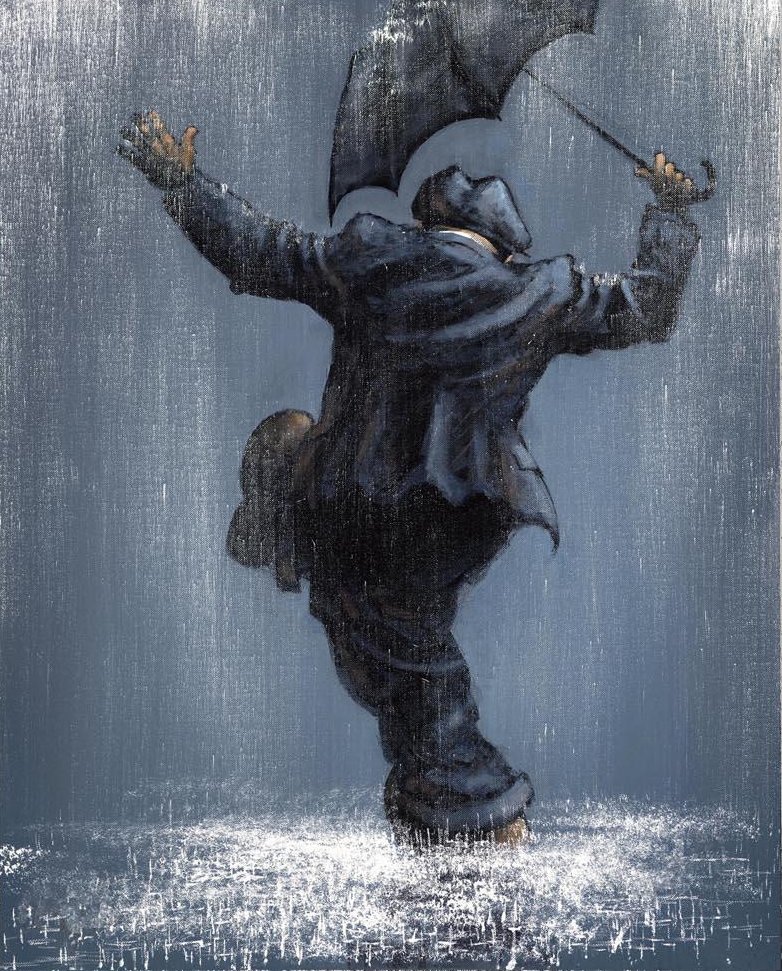Scottish painter Alexander Millar is one of the UK's most popular contemporary artists. Born and raised in the small mining community of Springside, just outside the town of Kilmarnock on the west coast of Scotland, Millar's earliest memories were of his time spent in the company of old men dressed in dark suits smoking woodbines and large missile-shaped women decked out in big overcoats, pinnies, tartan headscarves and zipped booties, adorned with fake fur around the top.
Home » Tutti i post

Alexander Millar, 1960 | Fly With Me

Jeff Rowland, 1964 | VideoArt
Jeff Rowland's ideas and inspirations: 'I have always been fascinated in two areas of art; the implicit meaning and the inspiration. I was inspired to paint a rain soaked street through films I saw at the cinema.
I am always inspired to experience what I am about to paint. I remember Billy Connolly saying that he hated songs about Scotland that were written by men in London: men who had never even seen the Highlands. In other words, if you are going to do something creative, get to the very heart of it first'.

Edgar Degas | Sculpture
Degas’ sculpture stands outside the mainstream of nineteenth-century French sculpture. He was never interested in creating public monuments, and, with one exception, neither did he display his sculpture publicly. The exception was "The Little Fourteen-Year-Old Dancer".
It was shown in the sixth Impressionist exhibition held in Paris in 1881, but the work has little to do with Impressionism. Modeled in wax and wearing a real bodice, stockings, shoes, tulle skirt, and horsehair wig with a satin ribbon, the figure astonished Degas’ contemporaries, not only for its unorthodox use of materials, but also and above all for its realism, judged brutish by some. The Little Fourteen-Year-Old Dancer was not seen again publicly until April 1920.

Grand Prix de Rome (1663-1968) | Art history
Dea Roma, Viale Trinità dei Monti, Villa Medici, Roma
Prix de Rome, in full Grand Prix de Rome, any of a group of scholarships awarded🎨 by the French government between 1663-1968 to enable young French artists🎨 to study in Rome.
It was so named because the students who won the grand, or first, prize in each artistic category went to study at the Académie de France in Rome.

Louise Abbéma | Belle Époque painter
Louise Abbéma was a French painter (1853-1927), sculptor and designer of the Belle Époque.
Abbéma was born in Étampes, Essonne. She was born into a wealthy Parisian family, who were well connected in the local artistic community.
She began painting in her early teens, and studied under such notables of the period as Charles Joshua Chaplin, Jean-Jacques Henner and Carolus-Duran.
She first received recognition for her work at age 23 when she painted a portrait of Sarah Bernhardt, her lifelong friend and possibly her lover.
.jpg)
Pascal Dagnan-Bouveret | The petit Savoyard eating in front of an entrance to a house, 1877
Pascal-Adolphe-Jean Dagnan-Bouveret (January 7, 1852 - July 3, 1929), was one of the leading French artists🎨 of the Naturalist school.
He was born in Paris, the son of a tailor, and was raised by his grandfather after his father emigrated to Brazil. Later he added his grandfather's name, Bouveret, to his own.
From 1869 he studied at the École des Beaux-Arts under Alexandre Cabanel🎨 and Jean-Léon Gérôme. In 1873 he opened his own studio with a fellow student Gustave-Claude-Etienne Courtois.

John Poppleton | Bodyscapes painter
John Poppleton was born and raised in the suburbs of Sacramento, CA. He was introduced to photography during his junior year of high school in 1988.
He pursued all areas of photography very passionately as a hobby until becoming a professional portrait photographer in 1993, after several friends convinced him to photograph their weddings.
It has always been John’s goal to create something original and different but fantasy portraits were never part of the plan.
Iscriviti a:
Post (Atom)

